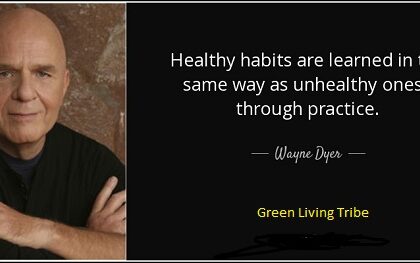Supplements are a $40 billion dollar industry in the United States, with over half of American adults taking some form of vitamin, mineral, or herbal supplement. Many consumers trust that these supplements are safe and regulated. However, consumer advocacy groups are raising alarms about the lack of regulation around supplements and the number of potentially dangerous products on the market.
Earlier this month, a coalition of consumer groups released the “Dirty Dozen” list of supplements that contain harmful contaminants and toxins. These groups are urging consumers to avoid buying and taking these potentially hazardous supplements, many of which are banned for sale in other countries.
The supplements on the Dirty Dozen list contain contaminants like lead, arsenic, mercury, prescription drug residues, and other toxic chemicals. Some also include misleading labeling, use inappropriate prescription drug ingredients, or make unsupported health claims.
According to the consumer groups, the contaminated supplements put consumers at risk of heavy metal poisoning, liver damage, birth defects, cancer, and other serious health problems.
Despite the risks, the majority of these supplements remain available for sale in stores and online in the US. The consumer groups are calling for more oversight and stricter testing to safeguard consumers from contaminated products. Until then, they advise avoiding supplements on the Dirty Dozen list and checking independent testing databases before buying any supplement.
Consumer Groups Warn of 12 Potentially Dangerous Supplements
Consumer advocacy groups are raising serious concerns about the risks posed by certain dietary supplements currently allowed to be sold freely in the United States. This month, a coalition of consumer groups released a “Dirty Dozen” list highlighting supplements lacking regulation that contain contaminants and toxins linked to concerning health effects.
Many of these potentially hazardous supplements are already prohibited from being sold in other countries like Canada, Europe, and Asia due to safety concerns. However, under current laws these products remain widely available for purchase over the counter and online in the US.
The Dirty Dozen: 12 Dietary Supplements to Avoid
The Dirty Dozen list identifies 12 supplements considered potentially dangerous that Americans can easily buy in stores or online. According to the consumer groups, these supplements should be avoided due to evidence of toxicity, contamination, or questionable safety. At least five supplements on the list are already banned in other countries.
Having a trusted source to get your Natural Herbs & Supplements is vital in this day and age.
I Recommend Starwest Botanicals. All Of Their Products are 3rd Party Tested And Many Are Organically Grown & Locally Available.
- Aristolochic acid
- Comfrey – Get 3rd Party Tested Organic Loose Leaf Comfrey Here
- Androstenedione
- Chaparral – Chaparral Extract That Has Been 3rd Party Tested Available Here.
- Germander
- Kava – Kava Capsules That Have Been 3rd Party Tested Available Here.
- Bitter orange – Get Quality Orange Bitter Essential Oils Here.
- Organ/glandular extracts
- Lobelia – Organic Lobelia Extract Available Here.
- Pennyroyal oil – Organic Pennyroyal Looseleaf Tea Available Here.
- Skullcap – Organic Skullcap Powder Available Here.
- Yohimbe
Why These Supplements Are Allowed to Be Sold in the US
The $40 billion dietary supplement industry faces far less regulation and oversight compared to pharmaceutical drugs in the United States. The Food and Drug Administration (FDA) can ban a supplement only by first proving it is unsafe, which is extremely difficult under current laws. While manufacturers cannot claim supplements treat or prevent diseases, they can make vague statements about the product supporting health or wellness.
Product labels often fail to fully disclose all ingredients and quantities, and confusing alternate names are frequently used for substances. Polls indicate many consumers wrongly believe supplements are approved by government agencies before being sold, require warning labels about potential side effects, and cannot make safety or efficacy claims without solid scientific evidence.
Calls for Stricter Testing and Regulations to Protect Consumers
The coalition of consumer groups behind the Dirty Dozen list strongly advise avoiding any supplements on it until safety can be assured. They recommend carefully researching supplements and checking independent testing databases before purchasing. While some retailers have pulled potentially hazardous supplements in response to concerns, the consumer groups stress much more needs to be done to protect public health. They are calling for more rigorous regulations and oversight of the supplement industry, including implementing stricter testing requirements for safety and quality. Until that occurs, consumers will remain vulnerable to buying contaminated, adulterated, or inherently unsafe supplements.
The release of the “Dirty Dozen” list highlights glaring issues with the current lack of regulation and oversight of the booming dietary supplement industry. While many consumers trust that the supplements they buy are safe, the reality is these products do not undergo the same strict testing and approval process as pharmaceutical drugs. The list showcases how easy it is to purchase potentially dangerous supplements in the US that are already prohibited in other countries.
Until more stringent regulations are implemented and enforced to better safeguard public health, consumers must exercise caution when buying supplements. Carefully researching products, consulting with doctors, and checking independent testing data can help identify supplements contaminated with toxins, adulterated with drugs or heavy metals, or linked to serious adverse effects. Relying on the claims of manufacturers is insufficient. Furthermore, the consumer groups advise avoiding any supplements on the Dirty Dozen list, as these products pose unacceptable risks with little to no evidence backing their safe use.
In Conclusion
The release of the “Dirty Dozen” list highlights glaring issues with the current lack of regulation and oversight of the booming dietary supplement industry. While many consumers trust that the supplements they buy are safe, the reality is these products do not undergo the same strict testing and approval process as pharmaceutical drugs. The list showcases how easy it is to purchase potentially dangerous supplements in the US that are already prohibited in other countries.
Until more stringent regulations are implemented and enforced to better safeguard public health, consumers must exercise caution when buying supplements. Carefully researching products, consulting with doctors, and checking independent testing data can help identify supplements contaminated with toxins, adulterated with drugs or heavy metals, or linked to serious adverse effects. Relying on the claims of manufacturers is insufficient. Furthermore, the consumer groups advise avoiding any supplements on the Dirty Dozen list, as these products pose unacceptable risks with little to no evidence backing their safe use.





